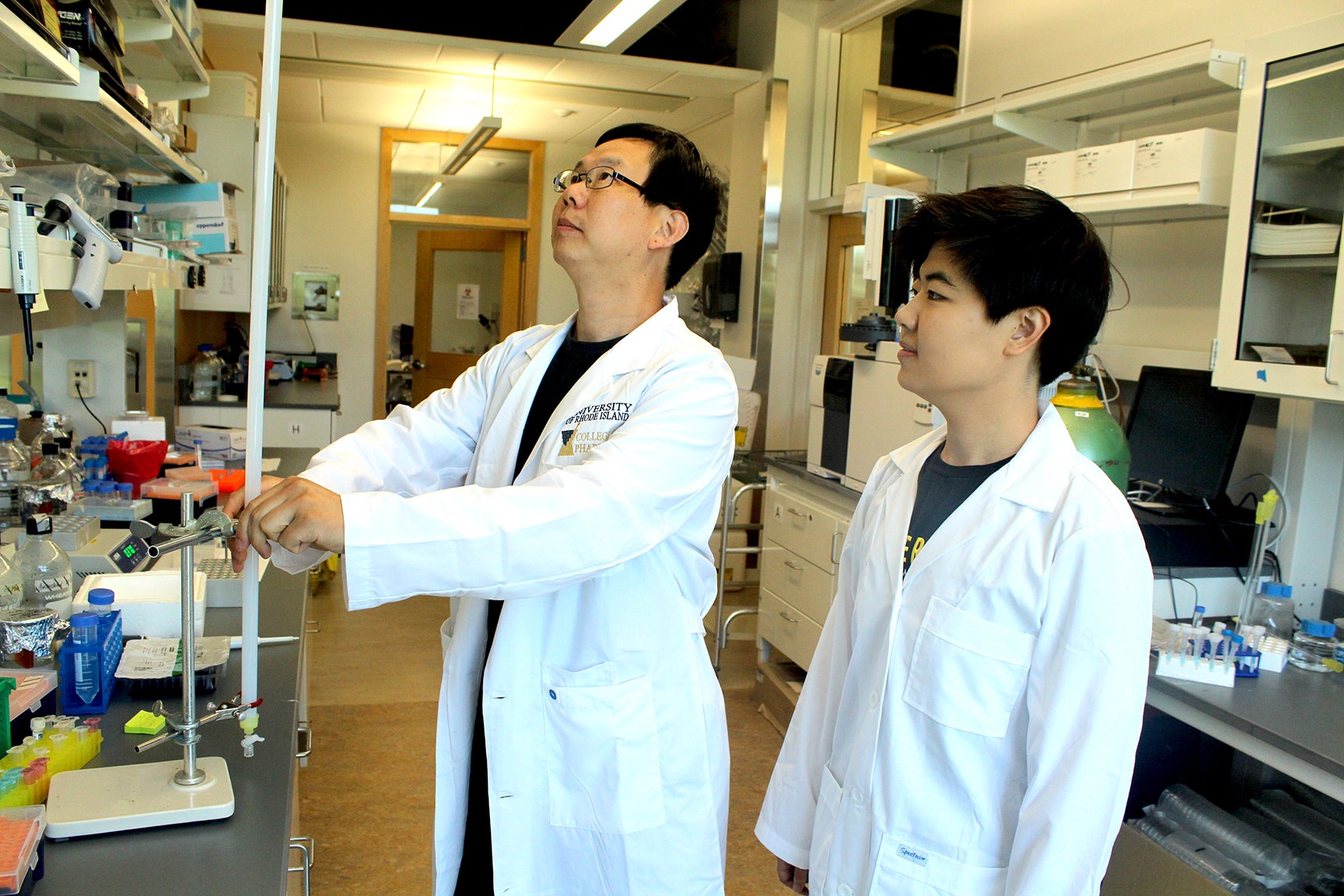Pharmacy professor develops novel virus-like particle platform for vaccine delivery
 |
| Professor Xinyuan Chen and Ph.D. student Yiwen Zhao work in Chen’s lab on a virus-like particle platform they hope will help lead to a universal flu vaccine. |
A
URI College of Pharmacy professor has developed a novel virus-like particle
platform to safely and more effectively deliver vaccines to the body, a next
step in the potential development of a universal flu vaccine and a new
coronavirus vaccine.
Dr. Xinyuan Chen recently received a $200,000 grant from the National Institutes of Health to continue research into his novel vaccine platform and develop new vaccines using the safer method of delivery.
The platform includes the use of
flagellin, a natural protein that is used as a carrier for vaccines, and which
also is an agonist that stimulates an immune response. Flagellin can sometimes
overstimulate the immune system, but Chen has discovered that by applying the
flagellin to the surface of the virus-like particle, the body’s immune system
reacts more strongly to the vaccine without being overstimulated.
“Our human body has a mechanism to recognize pathogens. By developing the vaccine with virus-like particles, our bodies can more strongly respond to that type of vaccine,” Chen said.
“Virus-like particles don’t replicate inside the body, so
they are very safe. If you put the virus in, it could potentially revert to its
infectious status, maybe in the immunocompromised population. So the virus-like
particle is a highly immunogenic, safe vaccine platform.”
Chen
has a patent pending for the new vaccine platform, which his lab will use to
attempt development of a universal flu vaccine that would protect against
multiple strains of the flu, instead of the individual strains the annual
vaccine currently protects against.
“The universal flu vaccine is a concept that would allow us to protect multiple viral strains,” Chen said.
“Proteins are the functional components of our
cells. When the virus mutates, not all parts of the protein mutate. So we have
found there are some regions of the protein that are highly conserved; they are
not mutating from year to year. So from that conserved region, we are
potentially able to develop a universal vaccine.”